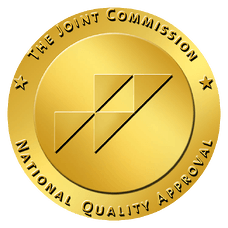The Healing Breath: A Holistic Approach to Stress Relief and Relapse Prevention
Empower Your Mind: Master Stress, Prevent Relapse Holistically!

In addiction recovery, a potent yet often overlooked tool lies within us – our breath. Beyond its role as a fundamental bodily function, breathing holds profound therapeutic potential. When harnessed effectively, it can alleviate stress and serve as a formidable defense against addiction relapse triggers. In this exploration, we delve into the science underpinning the therapeutic power of breath, its pivotal role in sustaining a substance-free life, and how it fortifies your defenses against relapse.
The Stress-Relapse Nexus
Stress is an ever-present factor in the relapse equation for those on the path to recovery. The demands of daily life can reignite cravings, unearth emotional scars, and weaken our determination. As someone well-acquainted with guiding individuals through recovery, I've witnessed firsthand how stress can lead to relapse. Therefore, arming oneself with effective stress-management tools is paramount in navigating sobriety.
Deciphering the Science of Breath
Our breath is intricately linked to our nervous system. By tapping into the autonomic nervous system, we can directly influence our physiological and emotional responses to stress – a critical skill in fending off relapse triggers.
- Sympathetic Nervous System (SNS): Often dubbed the "fight or flight" response, the SNS activates during stress, accelerating heart rate, constricting blood vessels, and releasing cortisol, a stress hormone. This response can stoke cravings and weaken resolve.
- Parasympathetic Nervous System (PNS): In stark contrast, the PNS triggers the "rest and digest" mode. It slows heart rate, relaxes muscles, and lowers cortisol levels. Activating the PNS is vital for stress reduction and relapse prevention.
Breath: A Natural Stress Reliever
Breathing's beauty lies in its accessibility and simplicity. By consciously altering your breathing pattern, you can directly affect your nervous system's response to stress.
- Deep Breathing: Slow, deep breaths stimulate the PNS. Inhaling deeply and exhaling slowly signals your body to relax, a game-changing practice for averting stress-induced relapse triggers.
- Mindful Breathing: Combining mindfulness with deep breathing creates a potent anti-stress technique. Devote a few minutes daily to mindful breathing, dissipating worries and cravings.
- Box Breathing: Inhaling for four seconds, holding for four, exhaling for four, and repeating engages both the SNS and PNS, fostering a balanced stress response.
Breath for Craving Management
Cravings often act as a catalyst for relapse, intensifying during stressful moments. Breathing techniques prove indispensable in managing these cravings.
- Mindful Craving Observation: When cravings strike, pause and mindfully observe them. Take slow, non-judgmental breaths as you acknowledge the craving, effectively disconnecting from its power.
- 5-5-5 Breathing: Inhale for five seconds, hold for five, exhale for five. This distracts your mind from the craving while involving the PNS.
- Breath Awareness: Regular breath awareness heightens self-awareness, enabling early identification of triggers, cravings, and stressors, allowing you to counteract them through mindful breathing.
Sustaining Benefits of Breath-work
Breathing techniques aren't solely crisis tools; they can seamlessly integrate into your daily routine.
- Stress Resilience: Consistent breathwork enhances stress management abilities over time, a critical asset against stress-induced relapse triggers.
- Emotional Regulation: Breathwork empowers emotional regulation, preventing emotions from spiraling into cravings or negative behaviors.
- Mind-Body Connection: Engaging with your breath nurtures a stronger mind-body connection. This connection aids in identifying physical and emotional cues, and proactively addressing them.
Fortify Your Defenses
Comprehending the science underpinning stress and relapse reveals the potency of your breath in combating cravings and sustaining sobriety. Breathing techniques illuminate pathways to a resilient, stress-free life. As you continue your journey to lasting recovery, remember that with each deliberate breath, you fortify your defenses against addiction relapse triggers, embracing a healthier, happier you.
CALL US TO BEGIN YOUR JOURNEY WITH WABASH RECOVERY (765) 780-7689, OR COME VIST US IN KOKOMO, INDIANA






